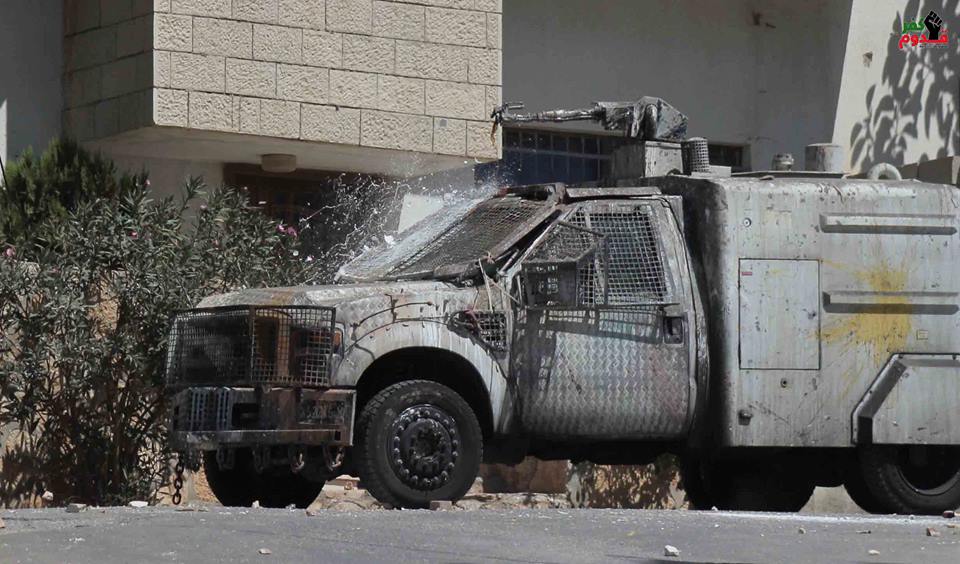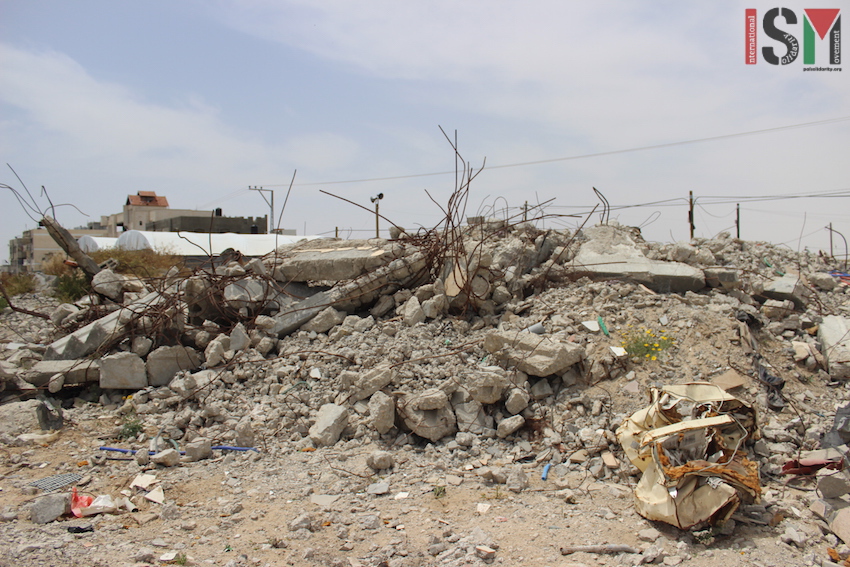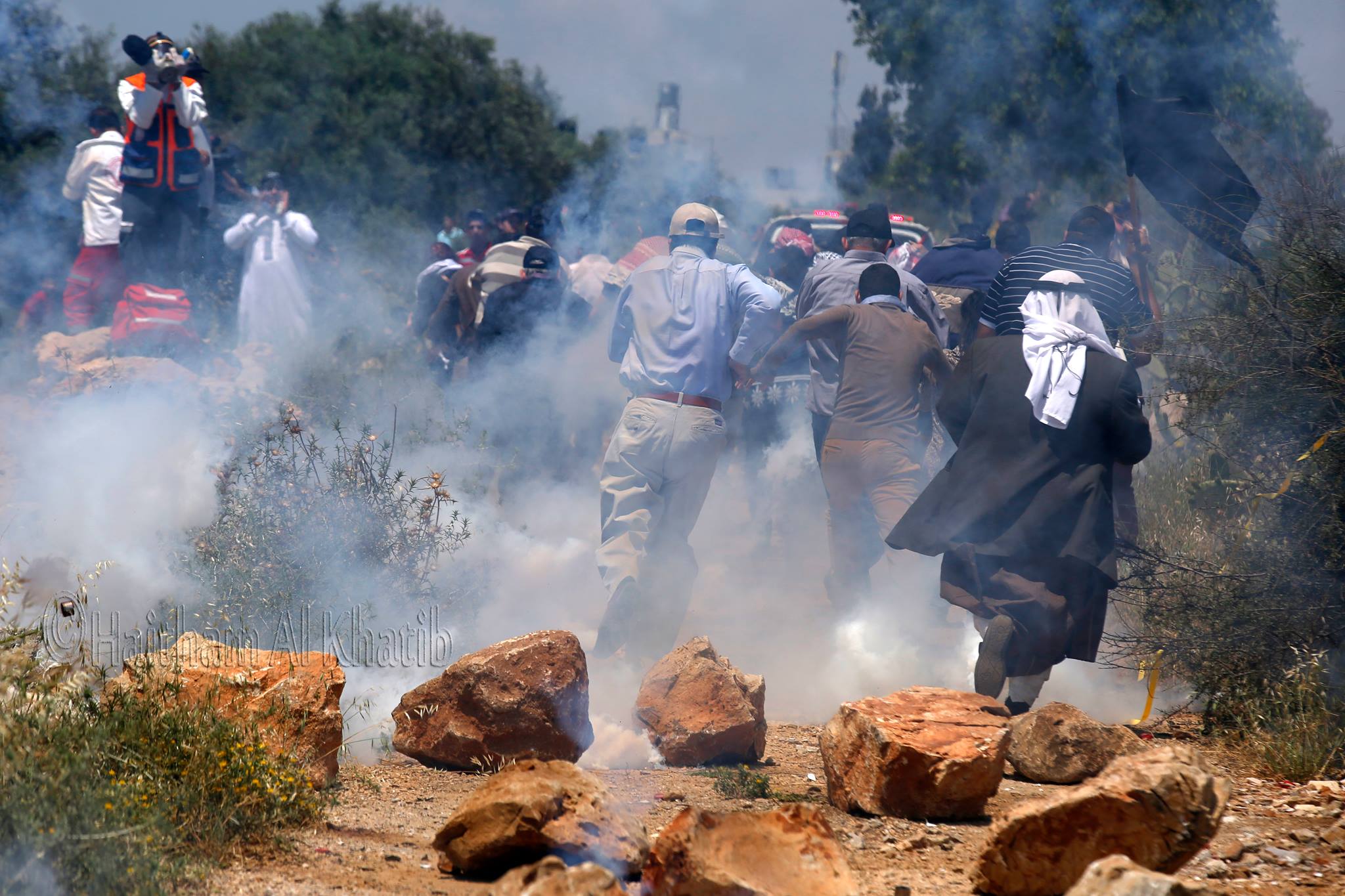Tag: Apartheid Wall
-
Israeli forces violently attack demontrants in Kafr Qaddum
18th September 2015 | International Solidarity Movement, Al-Khalil Team | Kafr Qaddum, Occupied Palestine Today in Kafr Qaddum, a village close to Nablus, Israeli forces injured almost 100 people. Israeli forces attacked the village at around 11 am and invaded a family home. Upon breaking into the house Israeli forces attacked the whole family with…
-
Surviving in Gaza’s caravan houses
27th May | Miguel Hernández | Gaza, Occupied Palestine The family El Najjar was expelled during the Nakba from the Palestinian village of Salamah. This village was the subject of a total ethnic cleansing by the Zionist colonizers. Nowadays just ten houses remain from the almost 2000 that formed the village. In its place today we can…
-
Day of Rage: commemorating Nakba day in Ni’lin
15th May 2015 | International Solidarity Movement, Al Khalil Team | Ni’lin, Occupied Palestine On Friday 15th May 2015, hundreds of Palestinians from all over the West Bank traveled to Ni’lin for a mass protest commemorating the 1948 Nakba (‘catastrophe’). The local villagers were joined by a large amount of other Palestinian protesters, as well as Israeli and international solidarity…



